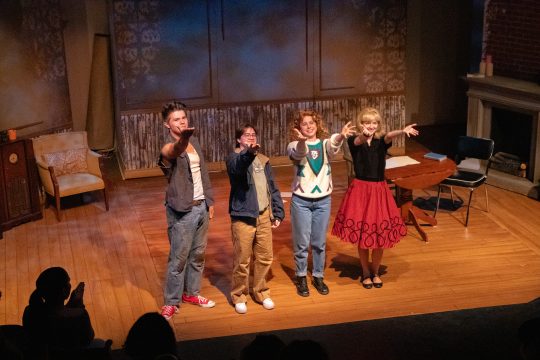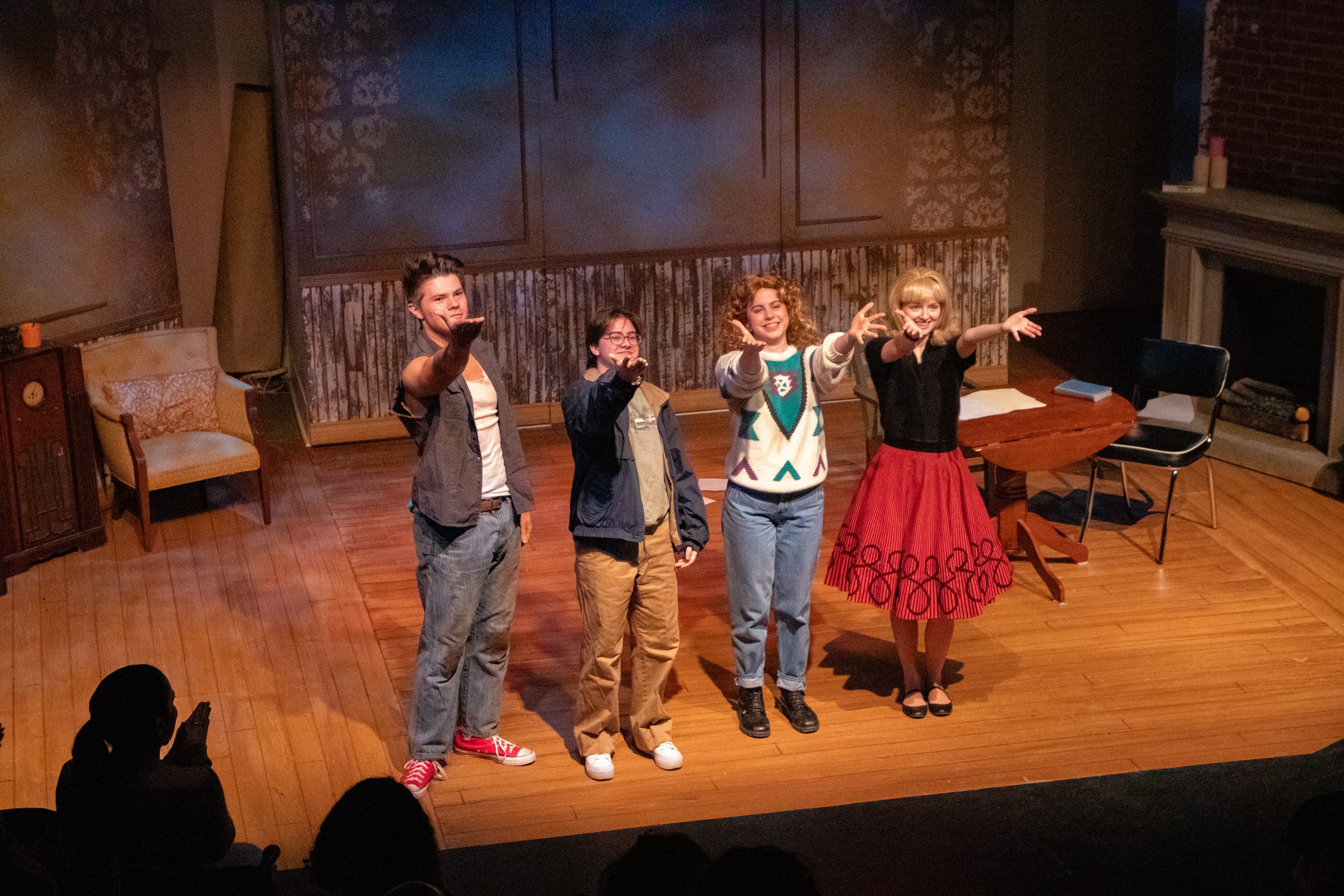Last week, Lawrence University hosted the premiere productions of three one-act plays written by students. Every other year, Lawrence chooses three student written scripts to adapt to the stage. This year, the plays were “This Isn’t How It Happens” by junior Shira Hanovich, “The House on the Hill” by Maddie Guest ‘24 and “Static Cling” by senior Nina Broberg. The overall theme of the night was death and the different way we as humans think about and process death and its surrounding concepts. Each play tackled the topic in a different way with different perspectives. I thoroughly enjoyed each play and how they made me think.

The first play, “This Isn’t How it Happens,” written by Hanovich, is about a woman named Kate who wakes up in a coffin at her own funeral. The only people there are the priest presiding over the funeral, Father Carter, and a professional mourner named Raleigh. As the play goes on and Kate tries to insist that she isn’t dead and micromanage the funeral, the three characters learn more about one another and confront their demons. Despite the grim subject matter, the play was written to be humorous. There’s a “who done it?” storyline, but instead of “who done it?” it’s “who’s dead?” It is just a very fun concept.
“I wrote something I thought was funny, and I wanted to make other people laugh. That was my overarching goal,” Hanovich said.
I really appreciated the humor in this story. There is a distinct dark but also satirical humor throughout that was very enjoyable to watch. When asked what their favorite part of the play was, Hanovich said it was the costumes — “All the credit for that goes to [sophomore] Aimsley Shearer […] I think the show has a sort of surrealist bend, and the costumes really build on that.”
The second play, “The House on the Hill” by Guest, is all from the perspective of four teenage ghosts in the afterlife. This play was definitely more emotional than the previous one but just as amazing. I absolutely loved how each character is a teenager from a different decade and how much research and detail was put into their dialogue. I also loved how distinct and realistic each character was, and how each one had different relationships with one another. Sophomore Kennedy McKinney played Michelle Abbot, a teenage girl who died in the 1980s. When asked about their character, McKinney said, “I was drawn most to her protectiveness of the younger characters, Adam and Lucille. It seems as though her family dynamic has been replaced by these new people she has met in the afterlife.” I absolutely loved the themes present in this play and what I believe Guest was trying to say: the idea of giving up versus letting go, accepting your fate and moving on to the next step. “The pain of moving on hurts, yes,” McKinney said, “but it’s necessary, because the pain of staying in the same place forever is worse.”
The third and final play was “Static Cling” by Broberg. This play is about a girl named Faith who, after coming home from surgery, tries to get in contact with her dead sister. Her neighbor Jill comes by to see what the commotion is and as the night goes on, we learn more about Faith’s demons. Similar to “The House on the Hill,” “Static Cling” was highly emotional. This play focuses more on concepts often associated with death, guilt and grief. In this play, Faith feels guilty for taking prescription opioids after her surgery because her older sister previously died from a heroin overdose, and she fears that her sister’s ghost has returned to haunt her. This play, while having an emotional story, is also the “scary” one of the three. For a majority of the play, it is unclear if Faith is actually experiencing these supernatural events or if they are all in her head. The people responsible for the sound design and lighting for the play did an amazing job at making this story extremely spooky.
Overall, I had a blast watching these plays. I have always found death a very interesting concept to explore in creative works. Throughout the night, while each play was on the same subject, nothing felt repetitive. Each story said something different. The series also creates such a strong and positive community at Lawrence. In their interview, Hanovich giddily expressed how proud they were of everyone involved and praised everyone’s talent. McKinney described the one-of-a-kind “family created through this theater-specific teamwork.” I hope to see these plays take off and get performed elsewhere! I would love to see each of them again! If anyone is in the Lawrence area in 2027, I highly encourage you to see the Eighth Biennial Student Playwright Series!

